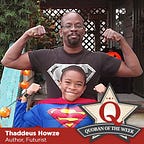Writing Craft: How can I tell if I am naturally a good writer?
Natural talent: What is it good for? Absolutely nothing.
Is whether you’re a naturally good writer important?
Do you mean as in are you capable of good penmanship? Will people appreciate the stylish way you put calligraphy on a page?
Or do you mean whether you are a person who is capable of writing well?
You see, each of these could be interpreted from your question. Thus it falls upon me to determine your context. As such, I must ask you a singular question which may help you consider the question and its context in relationship to YOU.
Is whether you are a naturally good writer meaningful to you in some specific way?
Would the ability to naturally, without serious or significant effort on your part, put words to a page which enthralled a reader, engaged their senses, tantalized their mind with vistas unexplored but sumptuously described be of any more merit than the skill to laboriously struggle to find exactly the right turn of phrase to describe the mouldering corpus of a victim brutally bound, gagged and exsanguinated under the light of a jaundiced moon; a moon hiding secrets long forgotten in this dark and unrepentant wildwood.
No matter your natural talent as a writer or as a storyteller, there is still some need for craft, some energy spent learning what comprises a story where you live, what compels a reader in your culture to continue with a tale you have begun.
Can you convince a person to finish your work? Must you?
Do they seek you out? Do they ask you what demons drive you to write what you do?
Do they ask you what genius (in the classical sense of the word, a spiritual entity which guides your creativity) helps you see the worlds you create, the visions you see, what guides your fingers across the keyboard whether it be effortless or with consternation?
Worry less, my friend over whether your abilities are effortless. If they are, then bully for you. Go forth and freely describe your worlds to a waiting and hungry audience, one seeking a natural maestro able to weave words into wonder.
However, if you are not a natural talent, nor blessed with burgeoning creativity, but you have a singular vision, a deliberate consciousness, a persistent will, then you too can labor, even if it is only a sentence a day.
Make that single sentence sing an aria of angels, even if it is just once a day.
Your labor will be to paint the world with an economy of brilliance.
Your labored words must show us, in stark contrast to the maestro, instead of a prosaic world, create one where each word houses within it, the potential of a universe.
Worry not about whether your talents be naturally endowed gifts from on high or refined by diligence, craft and singular burning desire. It doesn’t matter if you don’t use the skill.
All that matters is you write, when the passion strikes, when the hunger fills you, when you can’t contain the madness and don’t want to.
Write on, you beautiful bastards, no matter what. Universes won’t create themselves.
Other Writing Craft articles:
- Writing Craft: Prioritize
- Writing Craft: Stop Aspiring, Write!
- Writing Craft: On Writing Speculative Fiction
Thaddeus Howze is a writer, essayist, author and professional storyteller for mysterious beings who exist in non-Euclidean realms beyond our understanding. Since they insist on constant entertainment and can’t subscribe to cable, Thaddeus writes a variety of forms of speculative fiction to appease their hunger for new entertainment.
Thaddeus’ speculative fiction has appeared in numerous anthologies:Awesome Allshorts: Last Days and Lost Ways (Australia, 2014), The Future is Short(2014), Visions of Leaving Earth (2014), Mothership: Tales of Afrofuturism and Beyond (2014), Genesis Science Fiction (2013), Scraps (UK, 2012), and Possibilities (2012).
He has written two books: a collection called Hayward’s Reach (2011) and an e-book novella called Broken Glass (2013) featuring Clifford Engram, Paranormal Investigator.
